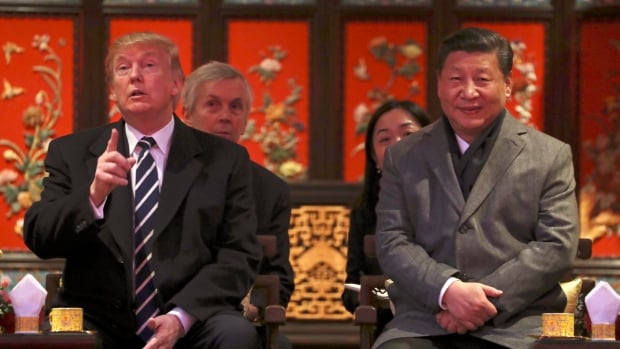BY OWOJAIYE OLUSHOLA OLADAPO
In all my discussions about climate change, I have consistently maintained that the most important force required to mount a sustainable fight is enlightenment. Specifically, enlightening people about their carbon footprints. While global discussions around climate change have intensified in recent years, many individuals and organisations remain indifferent or in denial of their roles in the ongoing crisis.
The problem, I believe, lies in how climate change is often communicated. Too often, climate discussions are either abstract or overly technical. As a result, the crisis feels distant and impersonal to many. In Africa, it is not uncommon to hear people ask, “How am I contributing to climate change?” Some even argue: “I don’t own a factory, so how am I part of the problem?”
This widespread disconnect highlights the urgent need for a more grounded and relatable approach to climate education. We must enlighten people on how their lifestyle choices are not only impacting the environment but actively worsening the climate crisis. A good place to start is by understanding one’s carbon footprint.
Advertisement
A carbon footprint is the total amount of greenhouse gases, primarily carbon dioxide, methane, and nitrous oxide, released into the atmosphere as a result of human activities. These emissions can be direct, such as driving a petrol-powered car, or indirect, like purchasing a plastic-wrapped product transported over long distances.
Our carbon footprint measures the environmental cost of our everyday decisions: the food we eat, the energy we consume, the mode of transportation we choose, the clothes we buy, and even the digital services we enjoy. Every one of these choices has consequences on the environment—some more visible than others.
Contrary to the belief that climate change is only driven by developed countries and their mega industries, individuals significantly shape environmental outcomes. Let’s consider just a few examples:
Advertisement
Transportation: Fossil-fuel-powered vehicles—especially inefficient ones—are major contributors to carbon emissions. There is a plethora of such vehicles on our roads, some dispensing thick, dark smoke reminiscent of old factories. I remember a friend who, each time we encountered such vehicles, would smile and say, “Dapo, this is global burning.” Air travel also generates substantial emissions. In Nigeria, there has been an increase in the patronage of the aviation industry, especially by the wealthy in our society, who either want to avoid the stress of road travel or fear being kidnapped. Choosing public transport, carpooling, or walking can significantly reduce individual carbon footprints.
Energy Use: In sub-Saharan Africa, electricity supply is unreliable, and the use of fuel-powered generators is widespread. Almost every household in Nigeria owns a generator, as the electricity supply is often nearly non-existent. These machines emit large amounts of CO₂, often without any regulation. Switching to solar energy or using energy-efficient appliances can help reduce emissions. I understand this solution can be expensive, but it is the way forward.
Diet: Meat-heavy diets, particularly those rich in red meat, are carbon-intensive due to the methane emitted by livestock and the resources required for meat production. While the average per capita meat consumption in Africa is relatively low compared to the global average, the number of cows butchered daily suggests a rising trend. Additionally, food waste generates emissions as it decomposes in landfills.
Consumption Habits: The culture of fast fashion, excessive packaging, and disposable products promotes a throwaway mentality that strains both resources and the environment. Choosing durable goods, recycling, and reducing waste all make a difference.
Advertisement
When people understand that their personal choices—however small—have a collective impact, they are more likely to take action. Enlightenment bridges the gap between awareness and responsibility. It personalises climate change, transforming it from a distant issue into a daily reality.
Enlightened individuals can become advocates, educators, and influencers within their families, workplaces, and communities. They help change behaviour, shift social norms, and push for stronger environmental policies.
The importance of enlightenment cannot be overstated. It is the fuel that powers behavioural change and sustains climate action at all levels of society.
For climate education to be effective, it must be tailored to local realities. In many developing countries, including Nigeria, people are often more concerned with immediate needs—food, shelter, electricity—than global temperature increases. Telling someone who hasn’t had electricity for two days to care about climate change is unlikely to resonate.
Advertisement
Therefore, the message must be contextual. Enlightenment should begin by showing how climate change affects issues people already care about: food insecurity, rising heat levels, erratic rainfall, flooding, and increasing disease outbreaks. When climate change is framed in terms of local impact, people pay attention.
Faith leaders, teachers, radio presenters, influencers, and local institutions can be powerful conduits for climate education. Using local languages, real-life examples, and culturally relevant narratives can break through resistance and make the message stick.
Advertisement
Enlightenment is not just about knowing—it must lead to action. Once individuals understand the problem, they must be ready to act: by conducting personal or household carbon footprint audits, using energy-efficient appliances, and turning off unused devices. After that, their actions and choices must be climate-smart. We must support and patronise businesses that prioritise eco-friendly practices, participate in community clean-up programs or tree-planting initiatives, and advocate for stronger environmental protection policies.
These actions, though seemingly small, can snowball into transformative change when adopted by enough people.
Advertisement
While policymakers, corporations, and international organisations play crucial roles in climate action, they cannot succeed alone. The climate crisis is deeply rooted in human behaviour. And changing that behaviour starts with enlightenment.
It is time for individuals to stop seeing themselves as spectators or victims in need of help from some remote places and start acting as stakeholders in the health of the planet. Understanding and reducing your carbon footprint is not only an act of responsibility—it is a step toward safeguarding the future.
Advertisement
Enlightenment is the bridge between ignorance and action, between helplessness and hope. Let us invest in educating ourselves and others. Let us spark conversations in our homes, offices, places of worship, and schools. Let us demand clearer messaging and better tools to help people make climate-smart choices.
Because in the fight against climate change, one enlightened mind can light up many more. And together, those lights can illuminate a sustainable path forward.
Owojaiye writes from Ilorin, Kwara state. He can be reached via [email protected]
Views expressed by contributors are strictly personal and not of TheCable.










